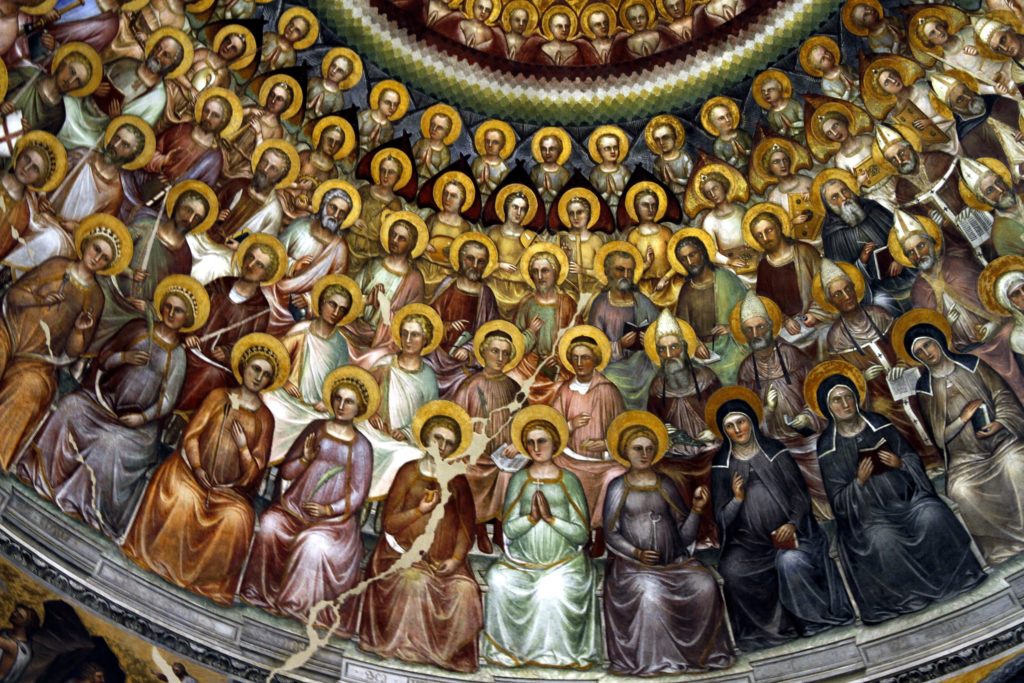This is the last time we’ll meet in these pages until November — the month of the saints, which begins with the feast of All Saints’ Day. So that’s the theme I want to take up.
A true Catholic could address any church as an assembly of saints. “Saint” is the term St. Paul used in greeting the Corinthians. And every parish is, like the Church in Corinth, an assembly of “those sanctified in Christ Jesus, called to be saints” (1 Corinthians 1:2).
In baptism every Christian has been “sanctified” and afterward must persevere in holiness. Yet God calls no one to go it alone. We draw strength from one another; and we are, all at the same time, drawing strength from God. St. Paul emphasizes that we are “called to be saints together with all those who in every place call on the name of our Lord Jesus Christ.”
We live in a vast community with “all those” in “every place” who share our calling. This was as true of Christians in Colossae as it is of Christians in Corinth. St. Paul addresses the Colossians as “saints and faithful brethren in Christ” (Colossians 1:2) — and he notes that he has heard of the love they have “for all the saints” (1:4), meaning those who live not only in Colossae, but everywhere else on earth. And then the apostle goes a step further. He goes on to give “thanks to the Father, who has qualified us to share in the inheritance of the saints in light” (Colossians 1:12).
“The saints in light” — what could he mean by that phrase? He could only mean the “holy ones” who had already died and who already knew God’s glory in its fullness, the faithful Christians who already live “in light” divine and who “see [God] as he is” (see 1 John 3:2).
The communion of saints, then, is not simply an earthly phenomenon. It is at once earthly and heavenly. As the Letter to the Colossians shows us, it is an “inheritance” we already “share” with those who are already enjoying it for all its worth.
The New Testament consistently testifies to this bond between believers alive on earth and those who are more alive in heaven. We are mistaken, in a sense, when we refer to them as “the dead.” Their bodies may have died, but their souls live in Christ; and they are, in fact, more alive than we are, because nothing obstructs them from God. They are now “in light.” “For now we see in a mirror dimly, but then face to face. Now I know in part; then I shall understand fully, even as I have been fully understood” (1 Corinthians 13:12).
Every Sunday, when we go to Mass, we profess that “We believe in the communion of saints … and life everlasting.”
And that is what we’ll celebrate, all together, as the new month begins.

